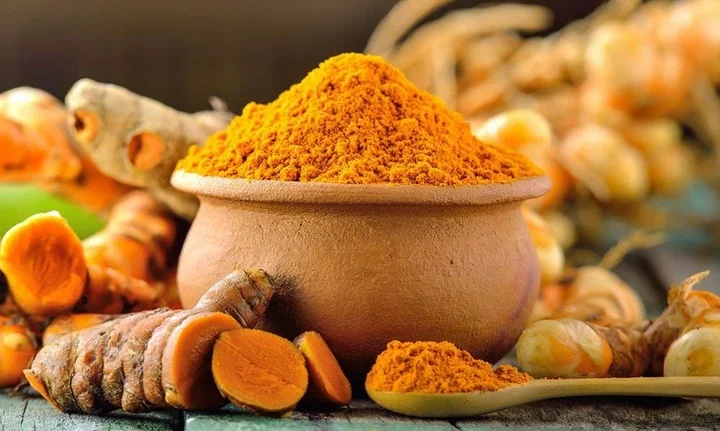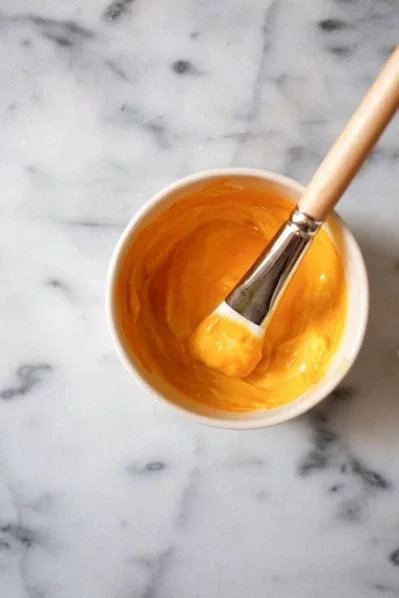When it comes to natural skincare, there's a spice that's been making waves for centuries with its remarkable healing properties - turmeric. Known for its vibrant yellow hue and its starring role in many flavourful dishes, turmeric is also celebrated for its numerous benefits for the skin. Let's delve into the golden secrets of turmeric...

When it comes to natural skincare, there's a spice that's been making waves for centuries with its remarkable healing properties - turmeric. Known for its vibrant yellow hue and its starring role in many flavourful dishes, turmeric is also celebrated for its numerous benefits for the skin. Let's delve into the golden secrets of turmeric and discover how it can transform your skincare routine.
A Spice with Rich History
Turmeric, scientifically known as Curcuma longa, is a rhizomatous herbaceous perennial plant that belongs to the ginger family. Native to South Asia, it has been a staple in traditional medicine for thousands of years, particularly, in Ayurveda and traditional Chinese medicine.
The primary active compound responsible for turmeric's remarkable properties is curcumin. Curcumin is known for its powerful antioxidant and anti-inflammatory effects, making it a potent ally for maintaining healthy skin.
Fights Acne and Blemishes
Acne, the bane of many individuals, often results from excess oil production, clogged pores, and inflammation. Turmeric's antibacterial and anti-inflammatory properties can be incredibly effective in combating acne.
Turmeric helps inhibit the growth of acne-causing bacteria and reduces redness and swelling. You can make a simple turmeric face mask by mixing turmeric powder with yogurt or honey and applying it to your face. Regular use can help clear up blemishes and promote a more even skin tone.
Reduces Skin Inflammation
Inflammation is a common culprit behind many skin issues, from redness and puffiness to conditions like eczema and psoriasis. Turmeric's anti-inflammatory properties can help soothe irritated skin and reduce redness.
For localized inflammation or skin conditions, you can create a turmeric paste by mixing turmeric powder with water and applying it as a spot treatment. Be cautious, though, as turmeric can temporarily stain the skin.
Brightens And Evens Skin Tone

Turmeric is a natural skin brightener and can help fade dark spots, hyperpigmentation, and uneven skin tone. It inhibits the overproduction of melanin, the pigment responsible for dark spots.
To create a skin-brightening mask, mix turmeric powder with yogurt and a few drops of lemon juice. Apply it to your face and let it sit for 15-20 minutes before rinsing off. Over time, you'll notice a more radiant complexion.
Delays Signs of Aging
Who doesn't want to age gracefully? Turmeric's antioxidant properties help protect the skin from free radical damage, which is a major contributor to premature aging. By neutralizing these free radicals, turmeric can help reduce the appearance of fine lines and wrinkles.
Consider incorporating turmeric-infused skincare products or DIY masks into your routine to reap the anti-aging benefits. You'll be on your way to smoother, more youthful-looking skin.
Provides Relief for Dry Skin
Dry skin can be uncomfortable and make your skin appear dull. Turmeric's moisturizing and hydrating properties make it an excellent choice for dry skin. It can help nourish and rejuvenate your skin's natural moisture barrier.
To create a hydrating turmeric mask, mix turmeric powder with yogurt, honey, and a few drops of olive oil. Apply it to your face and let it sit for 15-20 minutes before rinsing off. Your skin will thank you for the extra hydration.
Cautionary Notes
While turmeric offers numerous skin benefits, it's essential to use it wisely:
• Patch Test: Before applying turmeric to your face, do a patch test on a small area of your skin to ensure you don't have an adverse reaction or allergy.
• Staining: Turmeric can temporarily stain the skin, especially if left on for too long. Be cautious when using it and avoid getting it on your clothes or towels.
• Moderation: Don't overdo it. Using turmeric masks or treatments 2-3 times a week is generally sufficient. Using it too frequently may lead to dryness or irritation.
• Consult a Professional: If you have a skin condition or are using other skincare products or medications, consult a dermatologist before incorporating turmeric into your routine.
Finally, turmeric is a potent natural ingredient with a wide range of benefits for your skin. Its ability to combat acne, reduce inflammation, brighten skin, delay signs of aging, provide relief for dry skin, and more make it a valuable addition to your skincare arsenal. Embrace the golden secrets of turmeric and unlock the radiant, healthy skin you deserve.

















Comments